Welcome back to A View from The Summit. The Summit Academy is a classical liberal-arts school rooted in the Catholic tradition, located in historic Fredericksburg, Va., and serving students in grades 6-12. This newsletter informs readers about our school and the ways in which it is helping renew education and the Church.
If you’re enjoying this newsletter, please consider subscribing, sharing, and supporting via a paid subscription. Revenue from paid subscriptions will support The Summit Academy.
For the remainder of this academic year, I aim to follow the same publishing schedule, so you can expect a new edition every other Tuesday beginning today. In this first edition of the new year, we will cover the January goings-on: Exciting administrative updates, Headmaster Julian Malcolm’s upper-level theology class, and this semester’s array of elective offerings.
Administrative review:
The Catholic School Playbook recently featured The Summit Academy and its faculty highlight video. “Catholic School Playbook tells the stories of successful, faithfully Catholic schools,” said Kimberly Begg, editor of Catholic School Playbook, a project of the Ortner Family Foundation. “Our goal is to share the best practices of the best schools, so other schools can follow their lead and strengthen their own school communities, thus strengthening the universal Church.” Begg continued:
The Summit Academy of Central Virginia is one of the first schools we highlighted when we launched the Playbook in 2021. I had the pleasure of interviewing Julian Malcolm not once, not twice, but three times with the goal of learning what The Summit does differently to cultivate faith, virtue, and wonder in its students. The time with Julian was well-spent. His insights are among the very first that appear in the Playbook, beginning in chapter one.
That was three years ago—and now The Summit is three years stronger! Kudos to the school’s impressive teaching faculty, which is made up of men and women from diverse backgrounds, many of whom left more lucrative opportunities to be a part of The Summit, who are passionate about forming young people to live faithfully and virtuously in the modern world. May God continue to bless this beautiful school community!
The Summit’s Administrative Council continues to meet weekly to review school priorities. We applied for Hillsdale College’s Henry Salvatori Prize for Excellence in Teaching, which highlights the best and brightest classical educators, awarding a substantial cash prize to the winning school for textbooks and curriculum. We also attend carefully to school culture. One significant change in the past couple weeks has been a renewed commitment to order and formation in the middle school. Entropy is real—the hallway had devolved into piles of papers, binders, broken pencils, lost jackets and lunchboxes, and a couple of footballs. Middle school students have responded quickly and admirably to the call from school leadership to take better care of their space.
After several unanticipated snow days, The Summit also closed on January 19. The school closes annually in conjunction with the national March for Life to honor the efforts of Americans to protect unborn human life and serve their parents. We are grateful to the many Summit families, faculty, and staff who braved the freezing, snowy conditions to participate in the march in D.C.
Here’s how Headmaster Julian Malcolm put it in The Summit’s Week Ahead email the week of the March for Life:
While we are still working our way into the rhythm of a new semester, it’s important to keep in mind that the two events at either end of the week are certainly worthy of our time and reflection. On Monday we remembered the work of Martin Luther King Jr. and on Friday we marched in witness to the goodness of every human life. The dignity of human life is in fact, central to the project of liberal arts education and particularly relevant to our mission as Catholics. It is after all, a distinctly Christian claim that all mankind is made in the image of God (Gen 1:27) and that we are all ultimately called to participate in the divine life (2 Peter 1:4)! By the way, we’ve got two very relevant selections from Dr. King and Mother Teresa in the “What to Read” section this week. I hope you get a chance to carve out a few minutes to read and perhaps talk about them as a family.
Faculty & curriculum insight:
This week’s reflection is inspired by Headmaster Julian Malcolm’s Theology IV: Ecclesiology course. Mr. Malcolm co-founded The Summit in 2016. He has earned an M.T.S. from the Pontifical John Paul II Institute for Studies on Marriage and Family at The Catholic University of America. He brings significant business and financial experience to his role, having worked in senior positions at several major companies and founded several successful businesses throughout Virginia. Mr. Malcolm and his wife, both Catholic converts and graduates of the University of Mary Washington, have eight children. The following is adapted from a conversation he and I had about his course.
This senior-level theology course could also aptly be called “St. John Paul II’s Theology of the Body.” It aims to teach our students that there is innate goodness to our nature and our world, and it enables them to explore what this reality means for how we ought to live.
We need to understand the cultural water in which we swim and realize how it distorts our understanding of who man is. For decades, the Church has talked about the springtime of new evangelization, but we are realizing that the broader society’s self-conception of the human being has become even more dissociated from our true identity, causing further fragmentation.
To counter this state of affairs, we Catholics need to better understand and internalize the integration and createdness of our world. To understand these concepts, the course materials draw heavily on JPII’s vision for the Church. First, we seek a deeper understanding of God as transcendent, enlarging our understanding of who God is and who He would have to be in order to fully be God. We read in this section a variety of authors including Aristotle, St. Thomas, and even David Foster Wallace.
Then, we seek a deeper understanding of creation and of who man is. The world is not really something changeable, but, as Augusta del Noce observes, something given and received. The Christian doctrine of creation ex nihilo establishes not only that God is sovereign (reinforcing the material we cover in our first unit) but also that we are given the gift of freedom. God gave us ourselves, and what remarkable dignity there is in that. We are not puppets or machines, but we have been given ourselves and we have been made free.
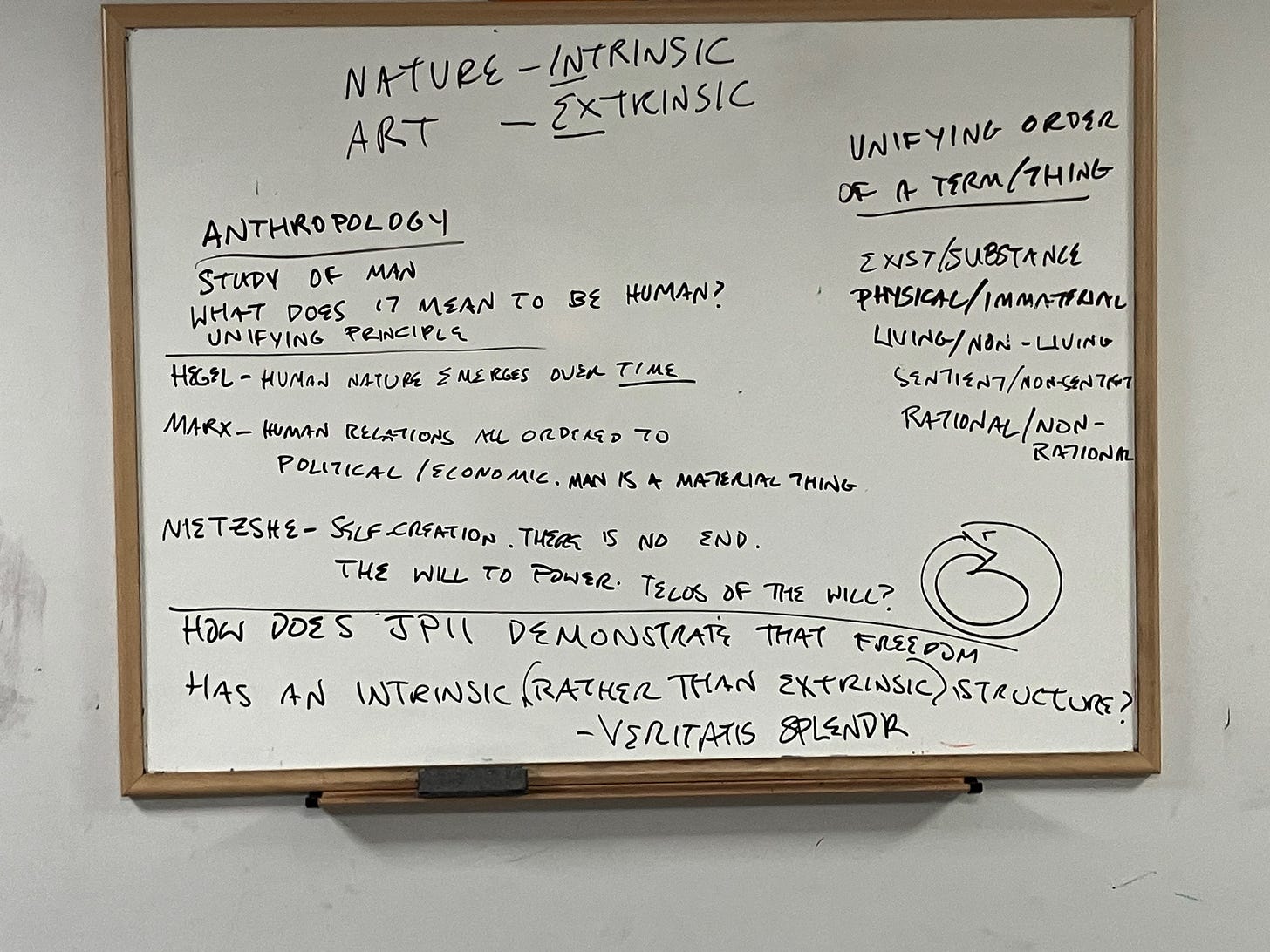
Some do not see such a dignity in man, and many have argued that, contrary to the Christian position, we are meant to create ourselves. This is what Carl R. Trueman shows in his masterful work Strange New World: How Thinkers and Activists Redefined Identity and Sparked the Sexual Revolution (Crossway, 2022). We are reading Trueman’s work as a way of understanding alternative proposals for what it means to be human, and ultimately, how those proposals fail to explain our innate, created goodness.
The Christian position, then, is not merely a different vision of freedom, but a different conception of man. Freedom in this view is interior to ourselves, not dependent on the exterior. Thanks to John Paul II’s profound reading of the classical tradition, he shows us that freedom is coincident with being. If being is a gift, it’s a free gift and ordered towards freedom in love.
Guided by John Paul II, we are getting much more than the typical slogans derived from Church teaching. We are receiving a deep, comprehensive understanding that the soul is form of body, and that means something. Our embodied experience as either male or female has theological meaning and therefore practical implications for how we live. Thus, we get Theology of the Body.
Co-curricular highlights:
The Summit is offering some terrific electives this semester. Electives are part of the curriculum, although the specific offerings change each year. “The Summit’s elective courses allow students and teachers to investigate subjects of mutual interest,” explains Evan Williams, Director of Curriculum & Faculty. “Although some offerings recur, each semester’s offerings are different and reflect the desire among students and staff to extend curricular conversations or apply intellectual habits to new topics.”
These courses are open to all upper-school students, although some require an application and others are designed for upperclassmen. There is a distinctly collegiate feel to these classes since they take place on Friday afternoons after required courses in math, Latin, and writing. This semester, students chose from American Mythology; New Testament Greek; Art History; Art Projects; Science Lab+; Philosophy of Mind; and Personal Finance, Entrepreneurship, and Philanthropy.
These offerings highlight particular areas in which our faculty members have expertise. For example, our Philosophy of Mind course is led by Mr. Julian Sicam, a doctoral candidate in Thomistic Studies. His thoughtfulness, intellectual curiosity, and desire to pursue the truth are infectious. Meanwhile, students in the American Mythology elective will explore—not 10 miles from the site where it is said to have happened—the implications of George Washington’s cherry tree for American political life.
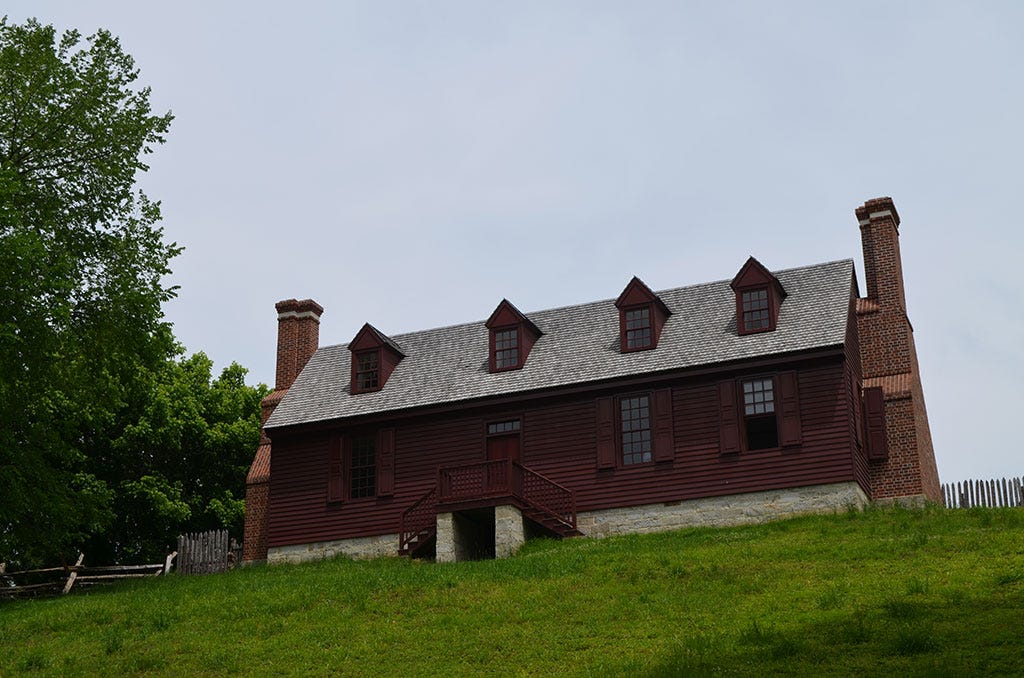
Finally, they are unique because they can serve the school’s animating purpose: our partnership with parents. Parents are the primary educators of their children, and they have the primary responsibility to help their children get to Heaven. Our job is to help parents do their job. Already as a result of my course on personal finance, one parent told me that he and his daughter had a 90-minute conversation on a Friday evening about finances and his life experience. This is exactly the kind of thing I want to facilitate. As I recently shared with the parents of my students in an email about the course:
Money can be a very personal thing. I am not an expert and we don't want to take a discussion of finances outside the context of family life. So, I wanted to send you a note informing you of what we're doing, how we're doing it, and invite you into the process. My goal with this class is to help our students become intentional about money––whether they're in a position to do so now, this summer with jobs, or in the future––so that it doesn't become a stumbling block to good relationships and their growth in holiness.
The Summit’s elective courses are a way to help prepare our students for college, enabling them to explore all manner of topics and understand the relevance and implications of their education.
What we’re reading:
For my elective class, we read selections from Fr. Jacques Philippe’s Searching for and Maintaining Peace (Scepter, 2002) and Rerum Novarum (1891), Pope Leo’s first encyclical. Using Fr. Philippe’s book to start our discussion, we considered the attitudes of freedom and detachment that characterize holiness when dealing with material things and circumstances, and Rerum novarum helped us discuss the natural right to property, the value of work, and the universal destination of goods.
In class we covered basic concepts of budgeting, expenses, debt, and savings. Next class we will read some Dave Ramsey and study a chart of assets by net worth to illustrate that, contrary to our popular imagination, American millionaires are ordinary people who live modestly and save consistently.
Last Sunday I read Prudence: Choose Confidently, Live Boldly (Our Sunday Visitor, 2022) by Fr. Gregory Pine, OP. Written in an accessible, simple style reminiscent of Fr. Jacques Philippe, this book has the feel of a spiritual classic. It communicates the structure and substance of the virtues, identifies prudence as the “charioteer” of the virtues, and prompts us to reflect on how we can become more prudent in practice. Fr. Pine offers a summary of virtue that captures the heart of our mission at The Summit:
How then do we work through the difficulty of choice and fashion a coherent life? The traditional Christian response is straightforward: by growth in virtue. By growth in virtue one learns to choose well not just once or twice, but consistently and dependably as a matter of character. Virtue makes one the kind of person who chooses well, so that choosing well becomes second nature. Virtue frees one to be who he or she is called to be, in accord with God’s revelation of himself in Scripture and Tradition. (p. 49).
This book is worthwhile reading, and I plan to revisit individual chapters in the coming weeks. While the book can be read in a day, it can’t be understood, digested, or put into practice in one day.
Finally, I am reading Cal Newport’s A World Without Email: Reimagining Work in an Age of Communication Overload (Penguin Random House, 2021). Just as Newport does in his earlier book Digital Minimalism, he argues that we need not reject useful technology but rather intentionally course-correct in our use of technology so that we can be happy, healthy, and effective.
I’m about a third of the way through but can already recommend it to any knowledge workers struggling with email overload. If you are responsible for projects that require focused work, careful attention, and deep thinking, your value is in completing those to the best of your ability—not in responding to emails immediately.
If you are enjoying this newsletter, please consider subscribing via the button above and sending it along to others who might be interested. Revenue from paid subscriptions will support The Summit Academy of Central Virginia.

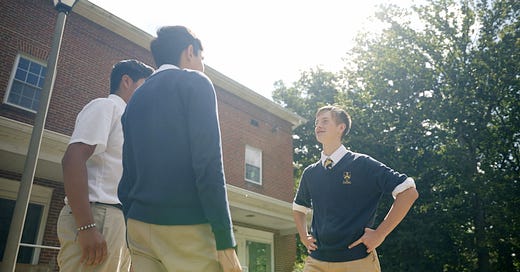




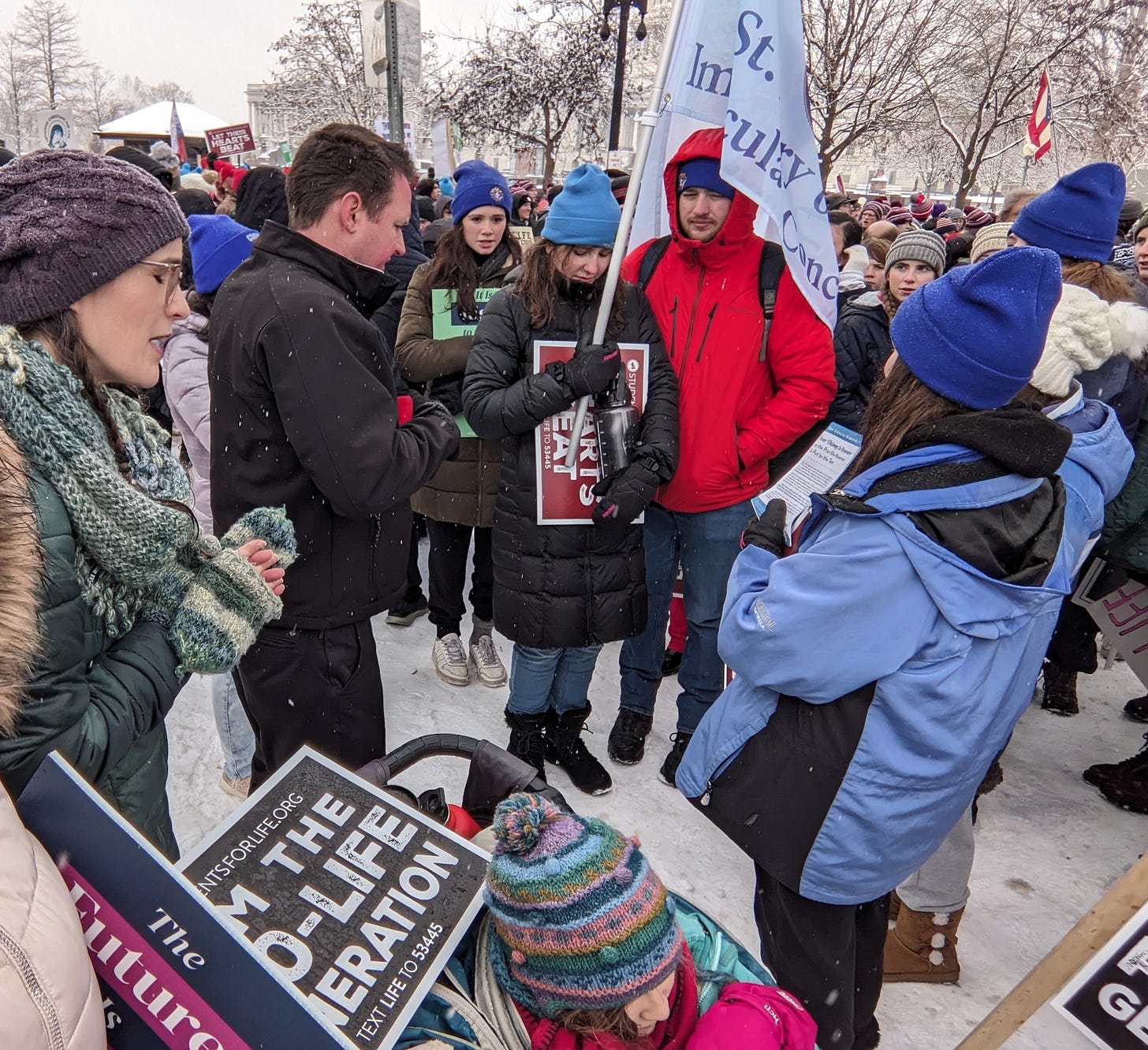
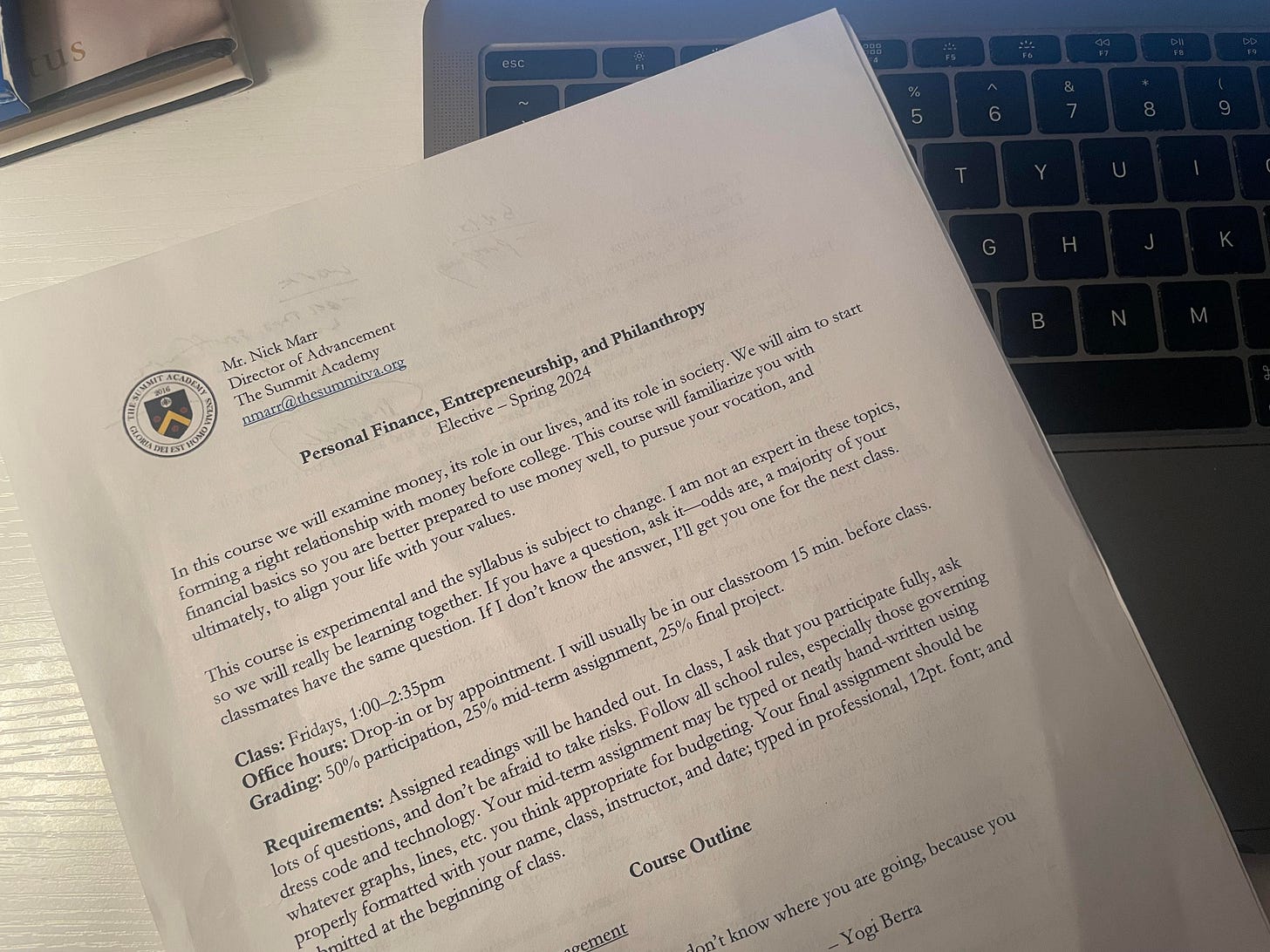
This is awesome. Loving the faculty reflections. Keep it up!